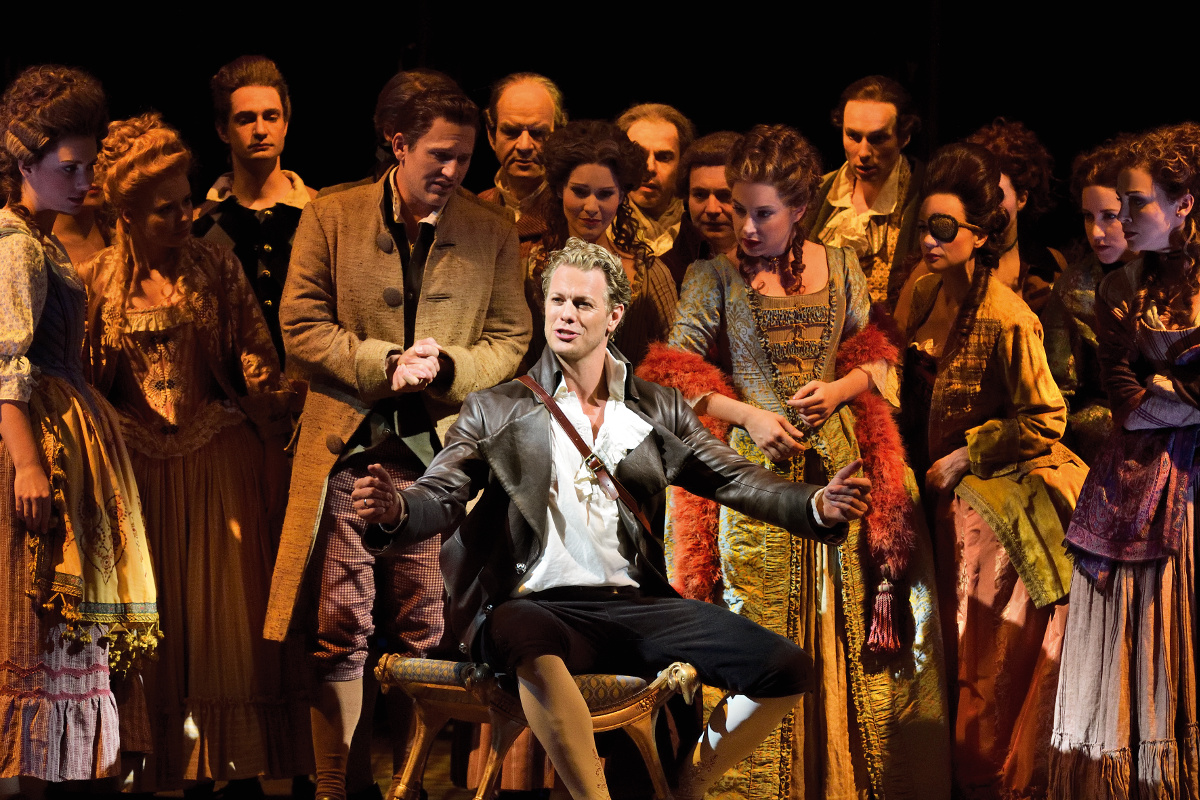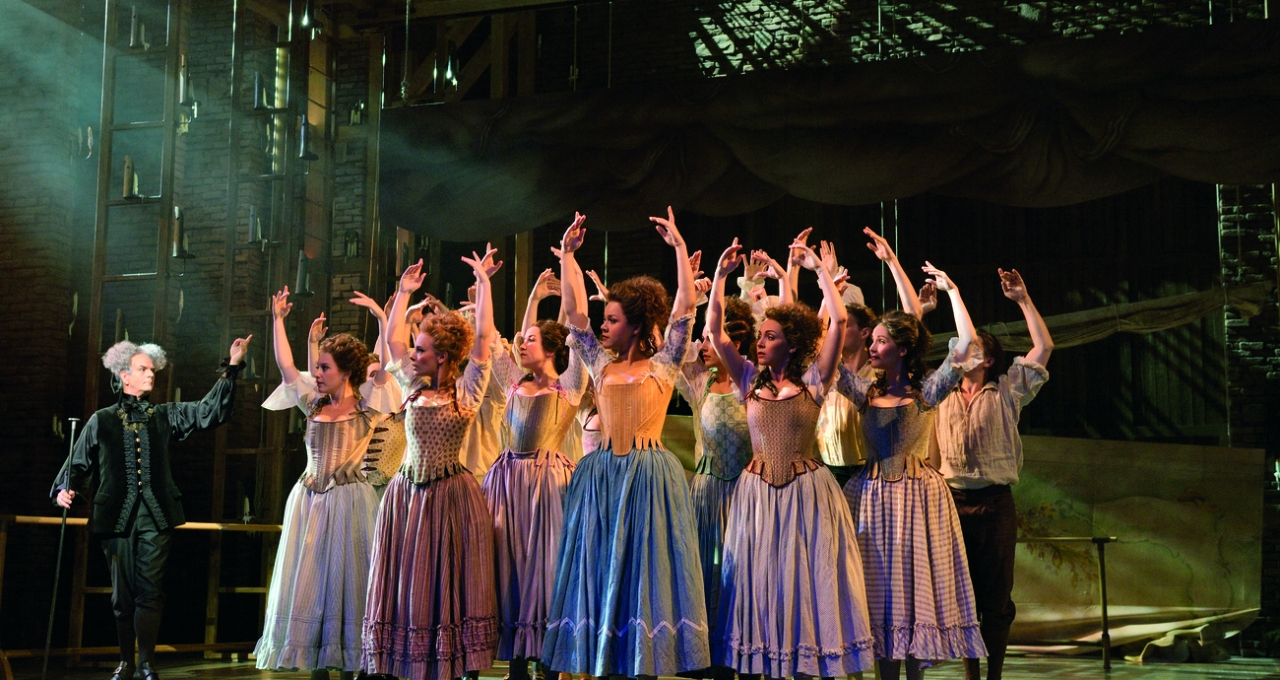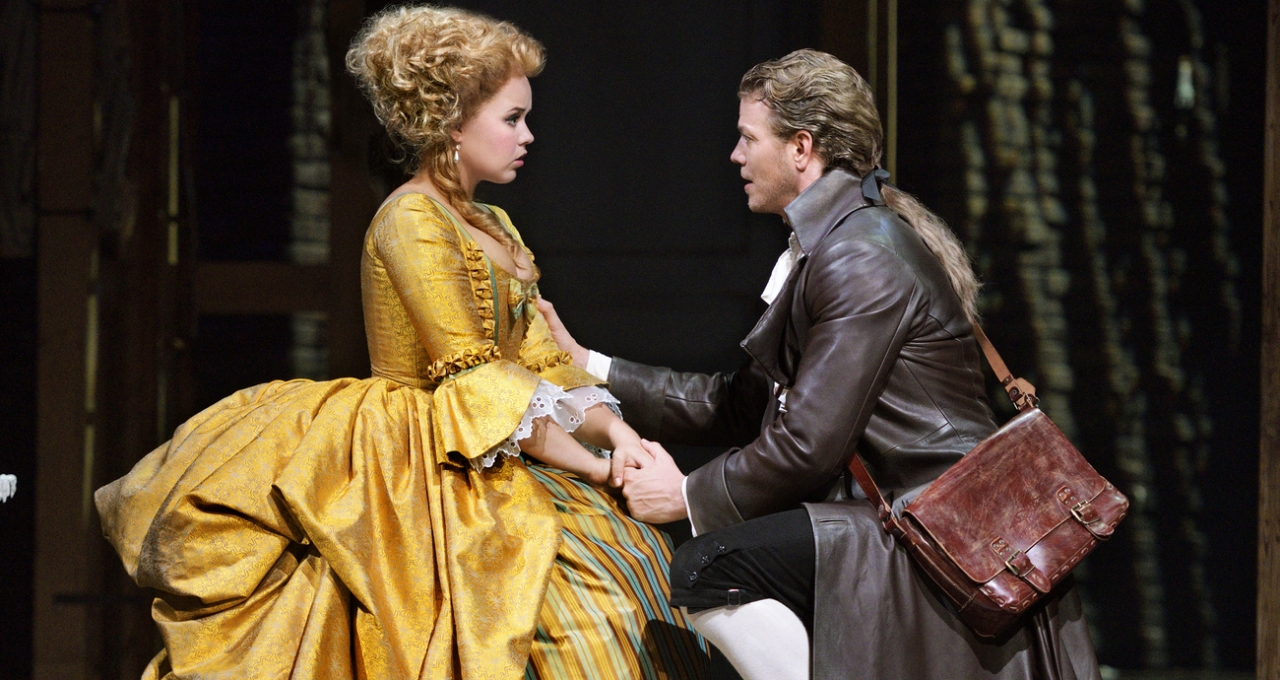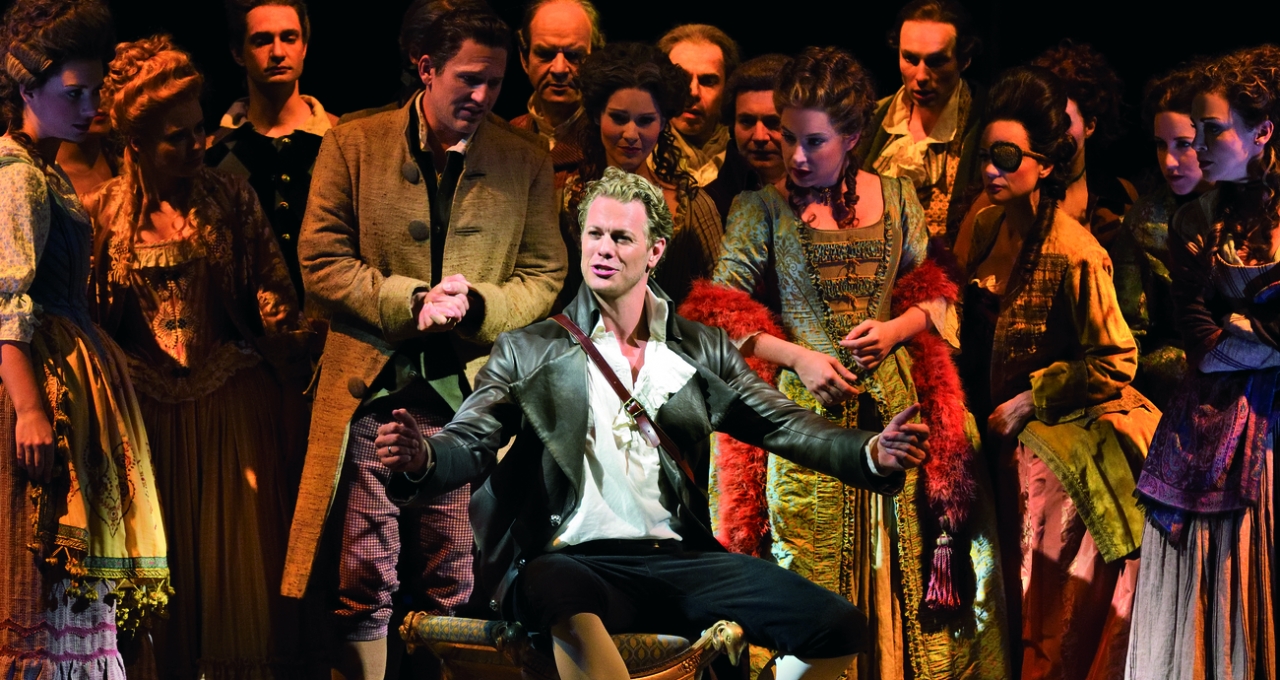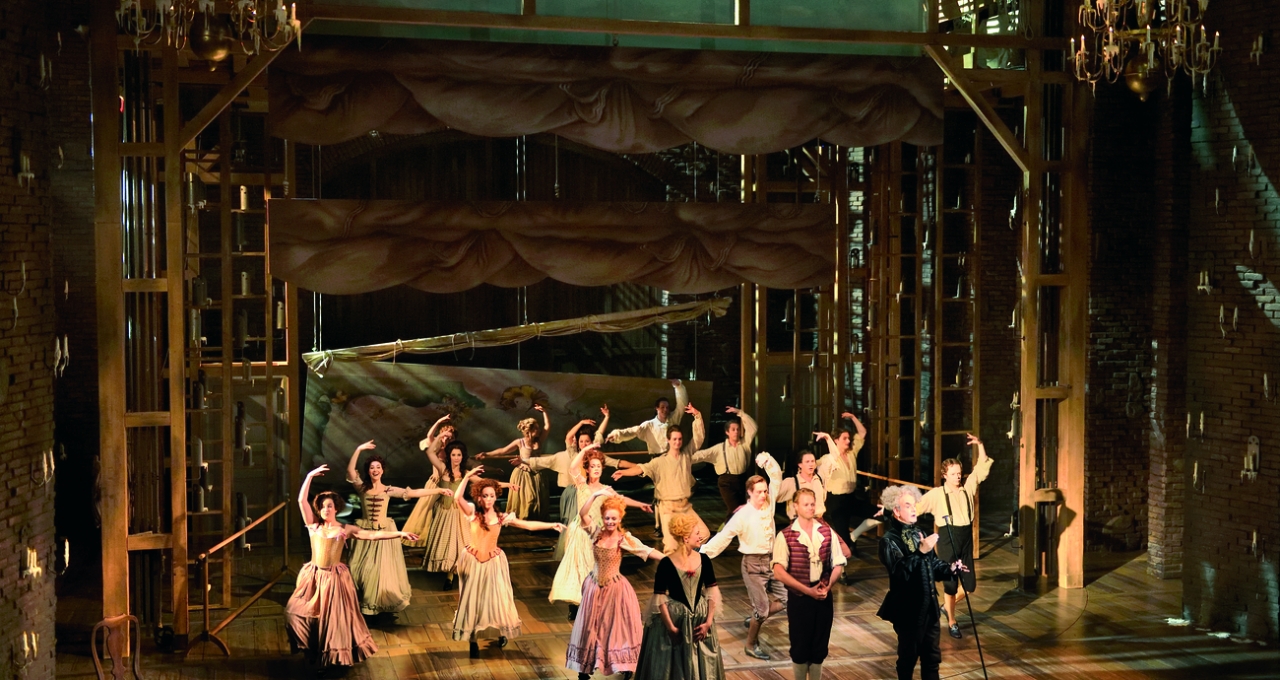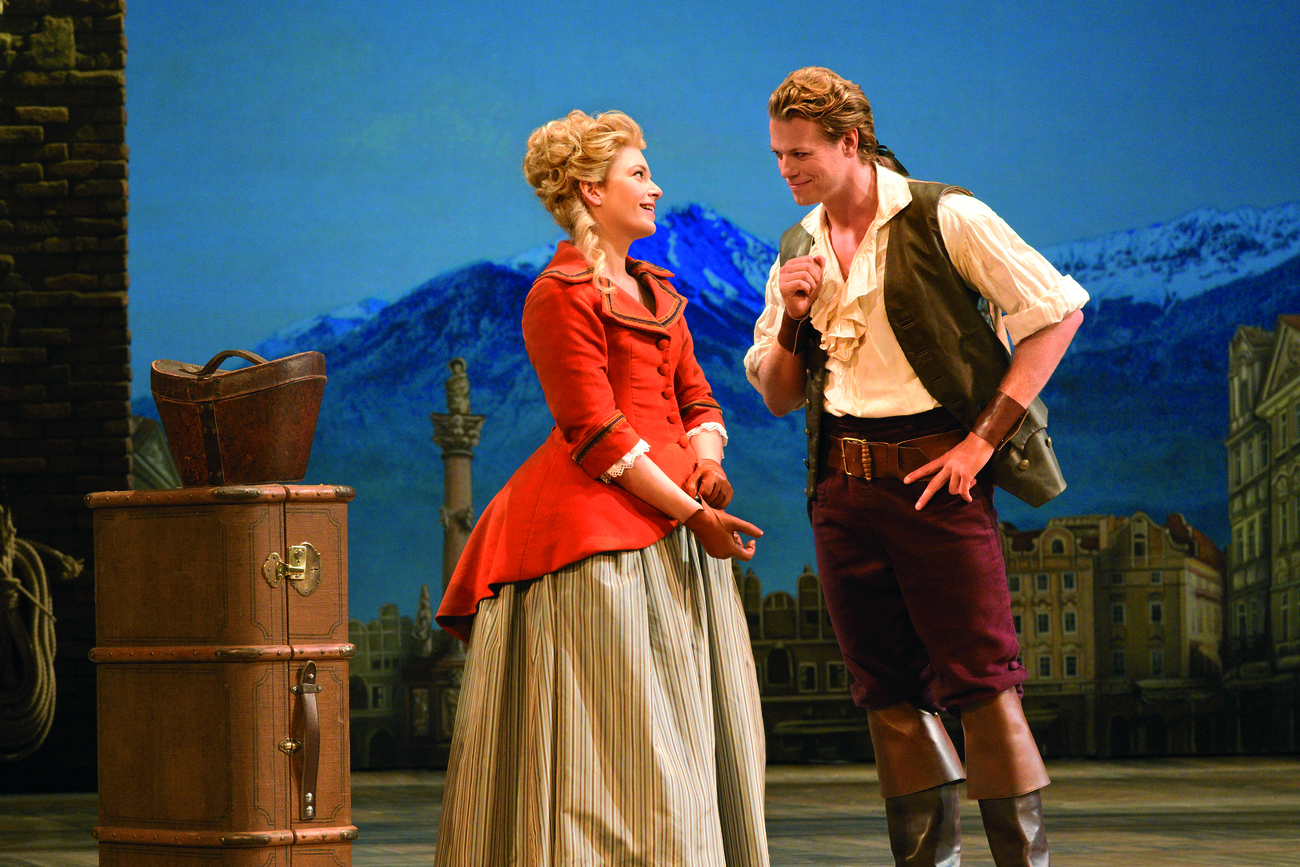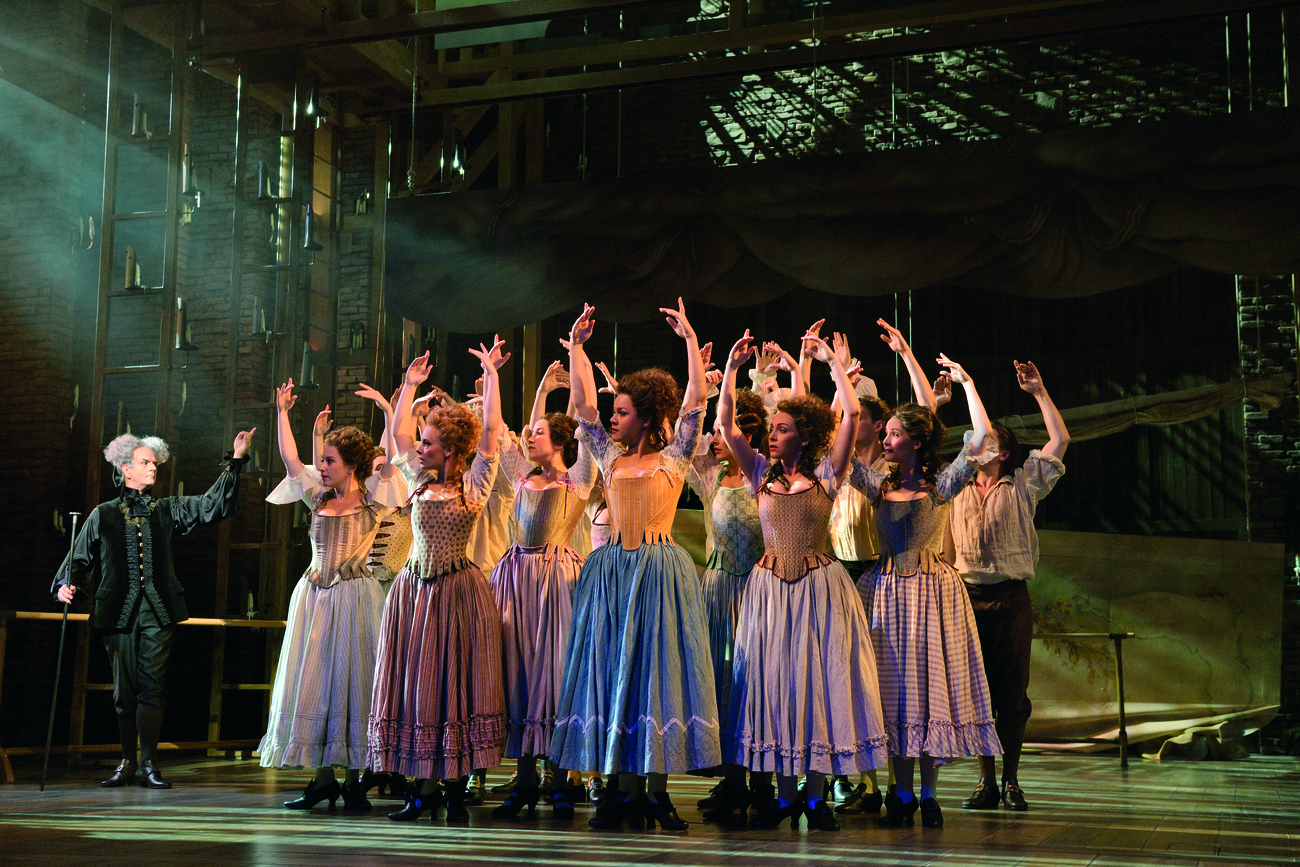Additional Tracks
Full musical soundtrack CDs available on request. Please contact us for our promotion packages.
Introduction
The stormy professional and romantic life of the famous theatrical impresario of his age – and the story behind one of the greatest works in operatic history. Romantic and witty, VBW’s new musical SCHIKANEDER brings the magic of the 18th century world of theatre to the stage. A captivating love story and emotional rollercoaster set against an authentic period background, it tells the turbulent story of a fascinating theatrical couple without whom Mozart’s The Magic Flute may never have been written.
The unique career of Wolfgang Amadeus Mozart and above all the story of The Magic Flute, one of the most celebrated works in operatic history, might have been very different had he not had an equally charismatic genius of opera and theatre at his side: Emanuel Schikaneder.
Based on historic facts, charming and witty, SCHIKANEDER offers insights not only into the genesis of that seminal work but is also a unique backstage romance: the tempestuous relationship between Emanuel Schikaneder and his wife Eleonore. Once carefree young lovers, after a path of trial and tribulation the couple become successful creative and business partners. Unusually for the time, Eleonore had an equal say in their career decisions both on stage and off. This often led to violent disagreements which, however, inspired them to exceptional artistic heights: One of the most enchanting and extraordinary works of opera, The Magic Flute, might never have been written without them.
The musical is unique in the story it tells and its staging. The opulent set is inspired by a real Baroque theatre. More than 600 electric candles produce authentic period lighting effects. The lavish costumes are made partly from valuable historic fabric, and the superb orchestration is inspired by the music of the late Baroque and Mozart’s compositional genius. These elements frame likeable yet realistic characters, a finely drawn social setting, stirring songs full of passion and zest for life, and a script full of sharp witticisms that brings the violent clashes in life and love between the two main characters unforgettably to life.
Emanuel Schikaneder, born in 1751, found fame as an actor, singer, director and playwright but above all as Vienna’s leading theatrical impresario throughout the late 18th and early 19th centuries. At Vienna's Freihaustheater he landed his biggest hit with the revolutionary German-language opera The Magic Flute. Schikaneder not only wrote the libretto but also played the bird catcher Papageno at the premiere, which was conducted by Mozart himself. The opera earned Schikaneder so much that he was able to build a new theatre: the Theater an der Wien, still one of Vienna's best-known and most successful theatres and the oldest and most historically significant of the VBW’s venues.
This close historical connection to Schikaneder prompted Christian Struppeck (Artistic Director of VBW and author of SCHIKANEDER’s book) to turn his story into a musical. With composer and lyricist Stephen Schwartz, a triple Oscar, Grammy and Golden Globe winner, and triple Tony Award-winning director Sir Trevor Nunn, Struppeck has successfully distilled Schikaneder’s life into a captivating love story that spirits the audience back to the magical world of 18th century Viennese theatre. How did it feel to take your seat in a candlelit theatre and experience close up the curtain rising on an enchanting world of magic and illusion, behind which lurked a rainbow of profoundly human fates? If any musical can open the gates of time to one of the most groundbreaking moments in the history of theatre and music, that musical is SCHIKANEDER!
Success Story & Production Notes
A world-famous leading team from Broadway and the West End
An innovative approach inspired by classical music
The timeless and captivating love story of a historical celebrity couple
Christian Struppeck, Artistic Director of VBW, and star composer Stephen Schwartz (WICKED, Disney’s THE HUNCHBACK OF NOTRE DAME, POCAHONTAS, GODSPELL etc.) had long planned to write a musical together. They found a fascinating historical subject in the life of Emanuel Schikaneder, one of the greatest and most prolific theatre-producers of his time, and Eleonore, his wife and business partner. Their turbulent love story enabled Struppeck and Schwartz to bring a piece of authentic Viennese theatre history to life, including the genesis of one of the world's most famous operas.
For its latest hit production, VBW assembled a superb superb multible Tony Award winning international leading team. Sir Trevor Nunn (CATS, LES MISÉRABLES, STARLIGHT EXPRESS, CHESS etc.) directed the world premiere on 30 September 2016 at Vienna's Raimund Theater, choreographer is Anthony van Laast (MAMMA MIA!, SISTER ACT etc.), set and costumes are by Anthony Ward (OKLAHOMA, MY FAIR LADY, SWEENEY TODD, etc.). SCHIKANEDER’s impact comes partly from its stirring love story, played out on a historically accurate set inspired by Mozart's era, and partly from Schwartz’s unusual musical approach with its obvious affinity to opera: sitting "at the source", as it were, he had the luxury of being able to recreate the spirit of 18th century music with a 33-piece orchestra that matches the original Magic Flute ensemble.
Thus, the show builds a magical bridge between then and now and strikes a wholly new note in the musical genre: a romantic comedy centring on a Mozart opera. The ups and downs of an influential historical theatre couple still resonate today, 200 years on, allowing ironic sideswipes at contemporary celebrity marriages. Nothing is more timeless than love and art, whether in real life or on stage in a musical!
Press Review
-
"The Raimund Theater has put on a show of a quality you might otherwise find only in New York on Broadway or in London’s West End.”
-
“Star director Trevor Nunn (‘Cats, ‘Les Miserables’, Royal Shakespeare Company) is a theatrical wizard who knows how to craft thrilling stage moments. He sends his characters racing through their scenes and gives them clear contours.”
-
“ Standing ovations for the opulent baroque musical ‘Schikaneder’ at Vienna’s Raimund Theater. Candles, fantastic costumes, baroque stage machinery, fire, pyramids and a tethered hot air balloon invoke Schikaneder’s theatrical magic and are a big factor in this new musical’s success.”
-
“Trevor Nunn's fast-paced staging exhibits both craft and virtuosity."
-
“ [...] a potential world hit. Three hours of marvellous entertainment that make the audience smile and sigh and whose tunes linger long in the ear. Nothing stands in the way of becoming a worldwide hit! ”
-
“ A well-made play.”
-
“Probably the best musical since ‘Elisabeth’: ‘Schikaneder’ at the Raimund Theater.”
Credits & key facts
- World premiere:
2016 Austria / Vienna (Raimund Theater/VBW)
- Music & Lyrics:
Stephen Schwartz
- Book:
Christian Stuppeck
- German Version:
Michael Kunze
- Orchestrations:
David Cullen
- Vocal Arrangements:
Koen Schoots & Stephen Schwartz
- Director:
Trevor Nunn
- Choreography:
Anthony van Laast
- Set and Costume Design:
Anthony Ward
- Lighting Design:
Paul Pyant
- Sound Design:
Gareth Owen
- Video Design:
Ian William Galloway
- Musical Director:
Koen Schoots
Main Characters
-
Emanuel Schikaneder
The charismatic theatre director, producer, author, actor, singer and impresario is not only an exceptional and impressive presence in the 18th century world of German-language theatre, he is also a ladies’ man, handsome, good-humoured, charming, eloquent and self-confident – and, as if that weren’t enough, also a very shrewd businessman. But his charming and witty appearance conceals a highly temperamental, even explosive personality – and his relationship with his wife Eleonore is consequently a very stormy one. At the opening night of W. A. Mozart’s opera The Magic Flute, for which he has written the libretto, at his own Freihaustheater in Vienna in 1791, he becomes the first singer in opera history to play the part of the feather-clad bird catcher Papageno.
-
Eleonore Schikaneder
Emanuel’s wife and partner, both on stage and in real life. An extremely attractive, self-confident woman with a strong personality, she is more than a match for Emanuel’s temperamental character, and when it comes to wit and banter, she can certainly hold her own. Her determined exterior hides a compassionate and understanding spirit, and her intuitive feeling for what audiences want helps make Emanuel’s productions so successful. She contributes not only artistic creativity to his theatrical enterprises but also a keen head for business.
-
Johann Friedel
The son of a well-to-do family, Johann has turned his back on a life of comfort and devoted himself heart and soul to the theatre. He is an actor in Emanuel’s troupe of players but secretly dreams of being a successful playwright. He worships Eleonore, secretly at first but then ever more openly. When one of her philandering husband’s countless affairs gets pregnant, Eleonore, deeply hurt, turns to the sensitive and warm-hearted young man for comfort, and decides to run away to Vienna with him, to achieve what had originally been Emanuel’s great dream: the founding of a permanent theatre. But as writer and theatre manager, Johann lacks Emanuel’s talent and drive. His health and dreams both failing, he soon meets a tragic end.
-
Maria Anna Miller
The extremely attractive but naive and rather gullible young singer and actress is not only a member of Emanuel’s troupe, but soon becomes his lover and then falls pregnant with his child. When she realizes that, in spite of Emanuel and Eleonore’s break-up, she will never occupy the same place in his heart, she leaves him and the troupe, but in a final, dramatic twist of fate returns to Vienna in poverty to ask Emanuel and Eleonore for help for her child.
-
Barbara Gerl
An actress and singer in Emanuel’s troupe, she is Eleonore’s best friend and confidante and the one who warns her about Emanuel’s fateful affair with Maria Anna. Energetic and warm-hearted, she likes to take matters into her own hands, which causes turmoil on occasion – but ultimately she indirectly contributes to reuniting the couple after they have been estranged for years. At the opening night of W. A. Mozart’s opera The Magic Flute at Schikaneder’s Freihaustheater in Vienna in 1791, she becomes the first-ever opera singer to play the part of Papagena.
-
Karl Marinelli
Manager of the Leopoldstädter Theater and Schikaneder’s greatest rival, he is obsessed with driving his enemy Emanuel out of the Viennese theatre business forever, and does not scruple to engage in malicious intrigues to get his way. Ultimately, though, his bitter rivalry unwittingly provides the decisive spark of inspiration for The Magic Flute, thereby rescuing Emanuel and Eleonore from their financial and artistic crisis and reuniting them as a couple.
-
Franz Moser
The successful manager of a troupe of travelling actors and Emanuel’s great mentor and supporter in his young days. It is in Moser’s troupe that Emanuel’s full talent as a charismatic lead actor and playwright unfolds - and it is also where he first meets Eleonore. When, after a long career, Moser decides to retire and leave his troupe to a successor, he presents young Emanuel with his first major financial challenge as a theatre manager: Emanuel spontaneously offers him a large sum of money to take over the troupe, but then has to rack his brains to find the necessary cash.
-
Benedikt Schack
An actor and singer, Emanuel’s best friend and confidante, shrewd and witty, if occasionally somewhat cocky. No matter how bad things get, Benedikt never abandons Emanuel, and proves to be a true friend under all circumstances. On opening night of The Magic Flute at Schikaneder’s Freihaustheater in Vienna in 1791, he plays the leading male role, Prince Tamino.
-
Josepha Hofer
A singer and actress in Schikaneder’s troupe. The star and reigning diva of the ensemble who is starting to get on in years which is troubling her. On opening night of The Magic Flute at Schikaneder’s Freihaustheater in Vienna in 1791, she plays the Queen of the Night, the evil opponent of the kindly king.
-
Joseph von Bauernfeld
A nouveau riche Viennese businessman with a jovial character, and a self-proclaimed lover of the arts, who is actually a complete philistine. He generously agrees to fund the production of The Magic Flute, thereby not only becoming the financier of a massive hit, but also discovering in the process a genuine passion for theatre life’s advantages.
Synopsys
“Think of something wildly impractical and then dream big.”
-
Act I
A stormy encounter
Vienna, 1789, the Theater auf der Wieden: on the death of her lover, Johann Friedel, Eleonore Schikaneder inherits the management of the theatre, but as a woman she is not permitted to run it on her own. After rejecting a buy-out by her rival, Karl Marinelli, she has only one option remaining – to join forces with her notyet ex-husband Emanuel Schikaneder, whom she left years before. Eleonore rejects the idea out of hand, to the despair of her ensemble. Eleonore starts to explain how everything began and why she never wants to see Emanuel again.
Her story begins 14 years earlier: as a young woman, Eleonore joins Franz Moser’s famous troupe of actors. The charismatic lead actor and playwright, Joseph Johann Schikaneder, is instantly smitten by the intelligent young woman and sets his cap at her. The attraction is mutual, but Schikaneder is so obviously a Casanova that Eleonore initially rejects him.
During a ballet class, the ensemble gossips about Schikaneder and Eleonore. It is obvious that they are head over heels in love. When Franz Moser retires, following the death of his beloved wife, Schikaneder takes over the troupe with Eleonore’s support. She agrees to marry him. In honour of his bride, Schikaneder decides to adopt a new first name, one that matches hers perfectly - Emanuel. They make a perfect couple, not only in their private life but on stage. The illustrious stars of the troupe, they whirl from town to town and from one success to the next.
A fateful fling
Eleonore’s friend, Barbara Gerl, tells her that her husband is having an affair. It is evidently not his first, but this time Barbara considers it “serious”. Eleonore refuses to listen. Over the years, she has learned to turn a blind eye. Johann Friedel, a shy young author and actor, who has fallen hopelessly in love with Eleonore, both comforts and woos her, but she rejects his advances. Emanuel wins Eleonore over with his grand plans for both a permanent theatre and an opera in German, a complete novelty for the time.
However, when her husband’s naive young lover, Maria Anna Miller, confronts her with the fact that she is expecting his child, Eleonore is deeply hurt. She turns to Johann for comfort and persuades the sickly young man to run away with her and open their own permanent theatre in Vienna.
Maria Anna informs Emanuel of his wife’s departure, but when she realises that Emanuel will never marry her, she also leaves him. Emanuel is deeply shaken by Eleonore’s abandonment, but is unable to admit it to himself. Eleonore and Johann, Emanuel and Maria Anna all look forward to a new beginning, while Emanuel’s ensemble despairs over the break-up of the troupe. -
Act II
A dramatic reunion
Without Eleonore, Emanuel and his troupe are plagued by failure. His opera about a hot-air balloon flight is a flop and he throws money about. Eleonore and Johann suffer similar difficulties in Vienna. They take over the Theater auf der Wieden, but Johann lacks Emanuel’s willingness to take risks, which the troupe badly needs. In Regensburg, Emanuel begins an affair with the wife of the Prince and narrowly escapes arrest by fleeing the city overnight. In Vienna, Johann, already in ill health, has worn out his strength and dies in Eleonore’s arms after making her promise not to give up the theatre.
Back in the Vienna of 1789, the ensemble is deeply moved by Eleonore’s story and everyone understands why she has no desire to take her husband back. However, there is one small problem – Barbara has already sent for Emanuel. The wounds of the past immediately lead to a violent quarrel.
In the end, though, Emanuel and Eleonore admit to themselves that in the current situation they need each other. They agree to keep their relationship purely a business one, but continue to fight like cat and dog, and the troupe’s financial difficulties get worse. Outside the manager’s office, Barbara, Emanuel‘s friend Benedikt Schack, and Josepha Hofer, the diva of the troupe, discuss who can best calm the pair down. When Karl Marinelli renews his offer for the theatre because he needs a second venue for a new opera, Emanuel takes it as a personal challenge and claims that he is also working on a major new opera. Marinelli departs, uttering threats.A new beginning
Eleonore’s outrage at Emanuel’s empty boast is short-lived. The pair are soon bursting with ideas for a completely new kind of opera that will revolutionise theatre. They manage to convince Josef von Bauernfeld – to whom they already owe a great deal of money – to finance the show.
At the first rehearsals, the ensemble has nothing good to say about the new opera. Some of them even threaten to leave – until they hear an orchestra play part of the score for the first time, and are entranced. The dress rehearsal is rudely interrupted by two officials - Karl Marinelli has informed the authorities that Emanuel is employing more than the permitted number of candles. Since Emanuel cannot afford to pay the fine, the officials order that the theatre be closed. The ensemble leaves the building. Even Eleonore leaves without a word. Marinelli is triumphant, Emanuel is devastated. He believes he has now lost his wife forever.
But Eleonore returns and uses her favourite memento of Johann – a valuable necklace – to pay the fine. Just as she admits to herself that Emanuel will always be more to her than a “business relationship”, she catches sight of him embracing his former lover, Maria Anna Miller. Horrified, Eleonore decides to leave at once, determined that from now on she will live her own dreams without anyone else. But Maria Anna dissuades her. She explains she has come back because she is too poor to feed her son. She wants to leave him in the care of Emanuel and Eleonore. Eleonore allows Maria Anna to stay along with her son.
Emanuel and Eleonore are reconciled. On the opening night, they revel together in the huge success of their new opera - “The Magic Flute”.


